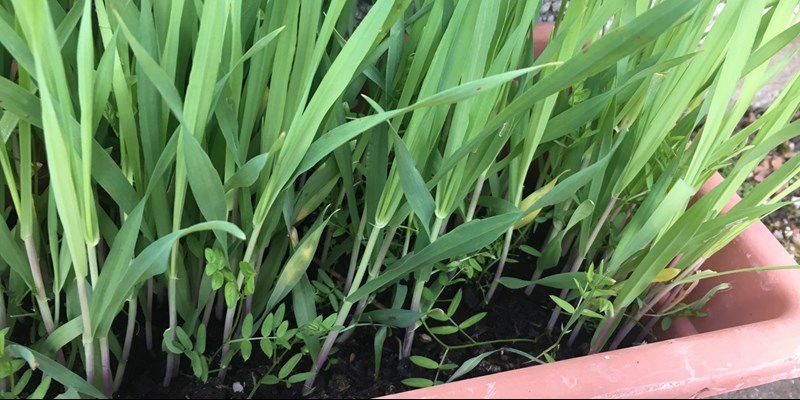
As farmers throughout Scotland are preparing to sow spring crops, secondary schools are being encouraged to undertake some outdoor learning and citizen-science linked to food, climate, soils and carbon.
In a partnership project funded by Esmée Fairbairn Foundation, educational resources are being offered to secondary school teachers by project partners The Royal Highland Education Trust (RHET), James Hutton Institute (JHI) and Buglife. As well as learning resources, free crop seed mixtures are also on offer.
Crop mixtures are intimate combinations of different crop cultivars or species grown together. These mixtures are being grown in response to the negative impact that traditional farming may be having on the environment. These include major declines in farmland biodiversity and evidence that the current food production system is simply not sustainable in the long term (due to, for example, declines in soil health) and is contributing significantly to climate change.
Sara Smith (RHET Learning and Development Coordinator) said, ‘The secondary school seed crop program is interdisciplinary science in action and links into developing an understanding scientific issues and relevant applications in society and the environment.’
Following on from this Roy Neilson (JHI) added ‘The current covid-19 pandemic has brought into sharp focus the importance of where food comes from and the benefits to society of a healthy environment. Understanding the underpinning science at a young age is important for future generations.’
In conclusion, Melissa Shaw (Buglife Conservation Officer) said ‘The seed crop program is a chance to use citizen science to see insights into how farming can affect our invertebrate biodiversity. It would also highlight the importance this has on ecosystem & soil health, pests and diseases.’
The benefits to growing mixtures include increased resilience to pests and diseases, increased available soil nutrients, improved soil health, and a reduced need for the addition of chemicals such as pesticides and fertilisers resulting in increased yields or sustained yield with reduced inputs.
Teachers can find out more by visiting the teacher’s area on the RHET website https://www.rhet.org.uk/teachers/crop-mixtures-food-sustainability/
